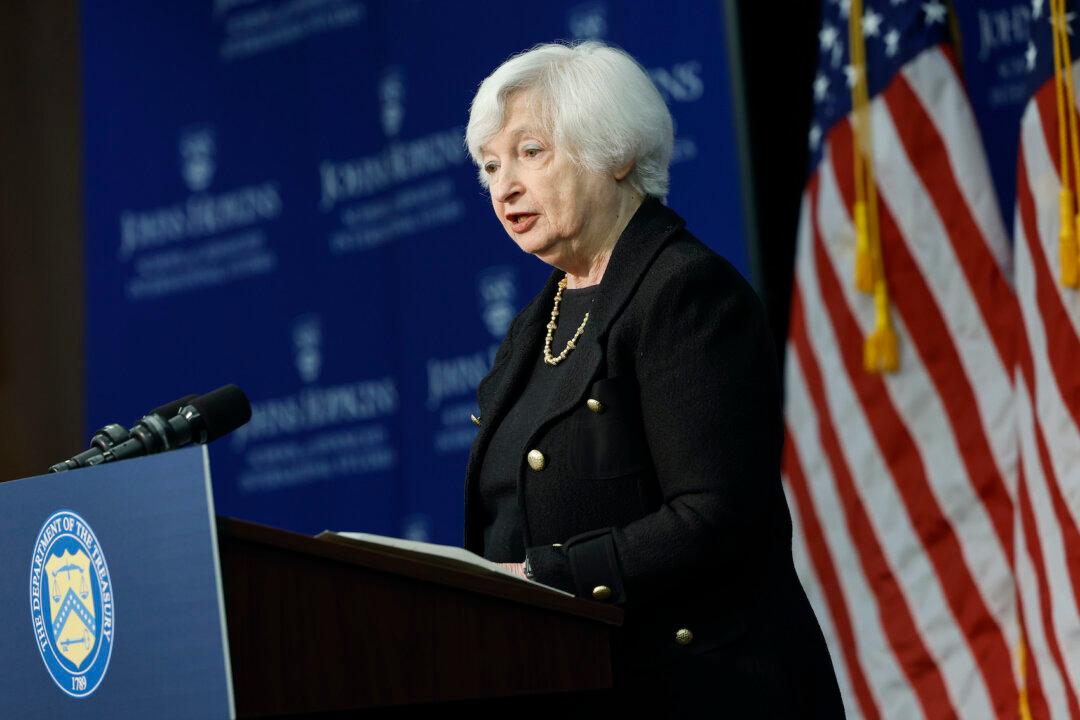The U.S. economy is “on the right track” because of the significant investments emanating from President Joe Biden’s signature Inflation Reduction Act, Treasury Secretary Janet Yellen said close to the first anniversary of the legislation’s signing.
Ms. Yellen delivered an economic pitch to the International Brotherhood of Electrical Workers 357 Training Center close to the Las Vegas strip, championing the current administration’s record on the economy.





